Buffalo theater troupe puts feminist spin on classics, explores humanity of public and historical figures
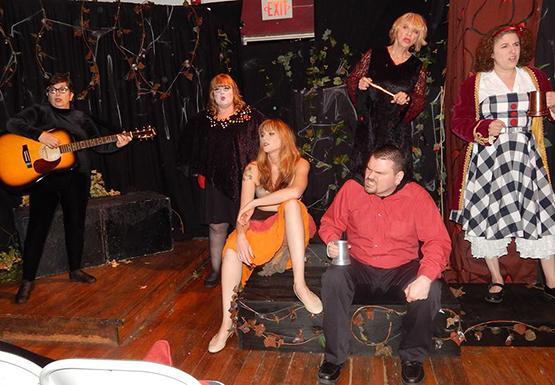
Courtesy of Maria Alesse/Brazen-Faced Varlets
The Brazen-Faced Varlets, a Buffalo-based theater troupe, recently performed “Some Wicked Women This Way Come,” a series of vignettes centered around various female historical and public figures. Their newt production, “Agnes of God,” debuts Friday.
According to Merriam-Webster, the word “varlet” is based in Middle English, and originally meant “a knight’s page.” Somewhere along the way, however, the usage was twisted to represent someone without principles. It’s a daring person who takes on this label proudly.
But the Brazen-Faced Varlets, a theater troupe based in Buffalo, do exactly that, putting a bold new face on some well-known and loved classics, as well as introducing original works, all with a feminist spin.
Kelly Beuth and Lara Haberberger, along with former member Heather Fansgrud, came up with the idea for the Varlets while looking through a Shakespeare textbook. The name of the troupe itself comes from a reference in the play “King Lear.”
“I had met Lara and Heather working on ‘The Vagina Monologues,’ and we really clicked as performers together, so we decided to do another show,” Beuth said. “Lara suggested a feminist (LGBTQ) re-imagining of ‘Romeo and Juliet,’ I suggested the Infringement Festival that was coming up, we put the two together and it’s been a pill ever since.”
That re-imagining turned into “Ramona and Juliet,” their inaugural production, and since then there have been more queer-themed Shakespeare revamps, as well as original productions. It’s grown to include a large handful of actors — both trained, like Haberberger, and untrained, like Brittany Kucala and Jane Cudmore. The latter two started acting with the Varlets at the same time, during an Eve Ensler play called “Necessary Targets.” Both expressed desires for a do-over, saying if they’d known then what they’d known now, the results would have been different.
“Each play I’ve done with the Varlets has increased my confidence and my training, and filled my bag of tricks,” Kucala said. “It’s made me confident enough to audition for other productions in other troupes as well.”
Cudmore is grateful for the opportunity to act alongside experienced talent.
“There’s nothing better than being given the opportunity to do something with people who are way better than you are, if they’re willing to suffer you,” she said. “If you’re smart, you sit back and shut up, you obviously pick up a lot.”
The troupe performed “Some Wicked Women This Way Come” from Oct. 10-26. “Some Wicked Women” is a series of vignettes written by the actors, based on the lives of female public and historical figures. While some, like Malala Yousafzai — the 16-year-old targeted and shot for wanting an education — are more noble, others (like Imelda Marcos, the extravagant, embezzling First Lady of the Philippines during the 1980s) are not. The common thread among them is that each was considered “wicked” or “defiant” by the society they were raised in, making for a well-rounded, sometimes humorous, overall insightful compilation.
The trick for the less savory characters was to find the humanity within the persona, something difficult for the actors-turned-writers in some cases.
“I think maybe we have to search first for something you have in common with that person, no matter how hideous you may think they are,” said Theresa DiMuro Wilber, one of the troupe’s actors. “For me, that’s how it works. I have to start at the base level, and work my way up from there.”
The experiences, faults, triumphs and trials of women provide crucial inspiration for the troupe, particularly in its newest production, “Agnes of God.” The play, written by John Pielmeier, is loosely based on a real-life incident involving a nun in Rochester, Sister Maureen Murphy, who was on trial for killing her newborn baby.
Haberberger wrote in the press release for the production that the play had a measure of personal value for her. In elementary school at the time the story broke, she found later on in life that the incident took a toll on her emerging spirituality.
“I did not fully realize it at the time, but this had a profound impact of my personal understanding of my faith, my sexuality, and my value of family,” she said.
“This play speaks to an unspeakable part of us… Only in the liminal realm created by our group suspension of disbelief can we be shown that the leaving one’s comfort zone can sometimes be a transcendent experience.”
The production begins Friday at the rear theater inside Rust Belt Books, at 202 Allen St.
In January comes a Shakespeare workshop, which is part of an initiative to get some of the actors working with new directors.
“Basically, we’re going to throw out a lot of monologues and scenes,” said Toni Wilson, the workshop’s facilitator and a board member. “Shakespeare’s cast was all male, so I feel that means there’s no gender discrimination. Anyone can play any part, depending on your acting ability, so that’s what I would like to see.”
Email: [email protected]
Twitter: @A_Rodriguez39


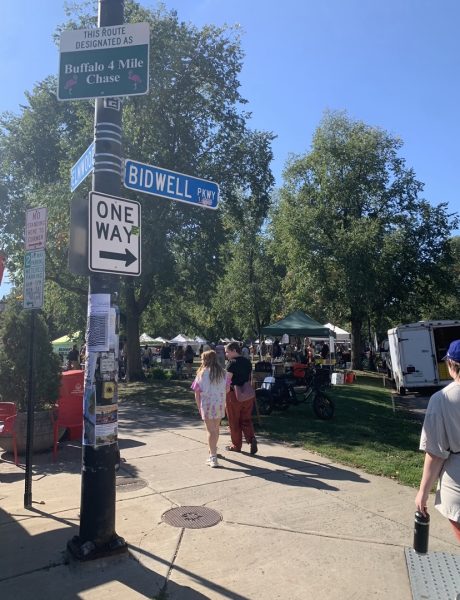

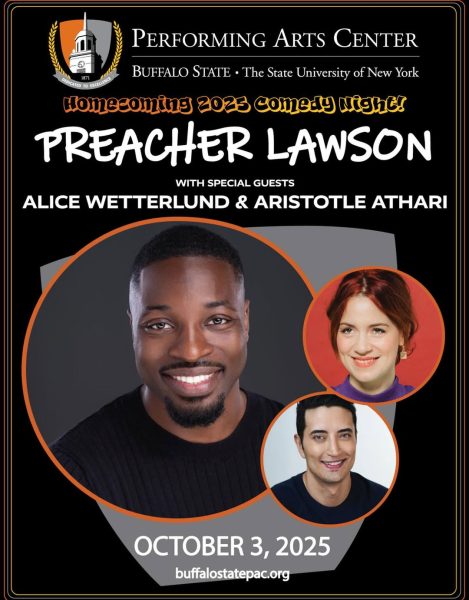
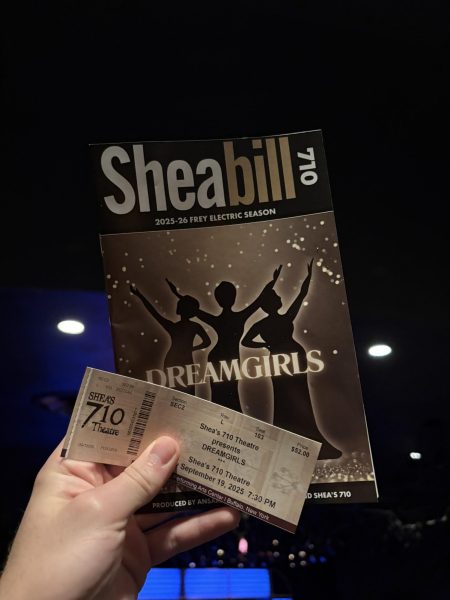
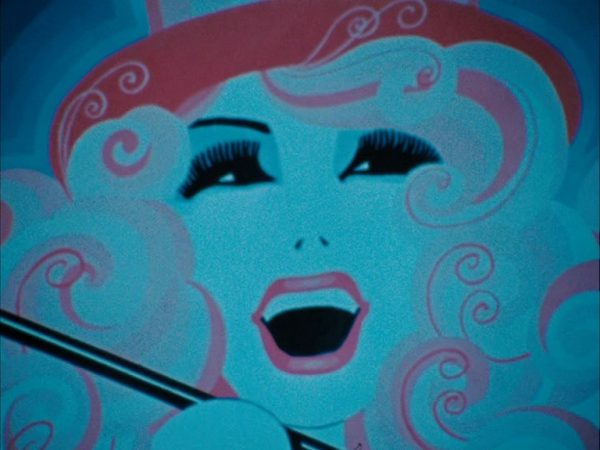

Sara B • Dec 9, 2013 at 6:43 pm
I’ve had the pleasure of working with the Varlets behind the scenes. I am so very proud of each and every one of them! Every article I read about them fills me with joy.
If you haven’t had the opportunity to see a production by BFV- please hesitate no more! You will be entertained and you will probably learn something, too.
Congrats on being awesome, Varlets!